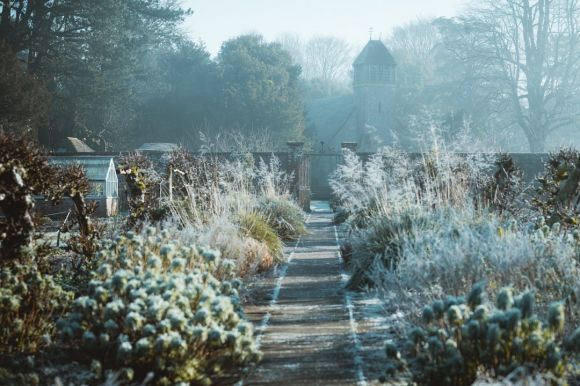As the colder months approach, it’s time to start preparing your garden for winter. By taking a few simple steps now, you can ensure that your garden remains healthy and vibrant throughout the winter season. From protecting your plants to maintaining the soil, here are some essential winter garden preparations to consider.
Protecting Your Plants
One of the most important tasks in winter garden preparations is protecting your plants from the harsh weather conditions. Cold temperatures, frost, and snow can all take a toll on your plants, so it’s crucial to provide them with the necessary protection. One effective way to do this is by covering sensitive plants with burlap or frost blankets. These materials help to insulate the plants and shield them from the cold. Additionally, you may also want to consider moving potted plants indoors or into a greenhouse to provide them with extra warmth and protection.
Pruning and Trimming
Winter is an ideal time to prune and trim your garden plants. By removing dead or damaged branches, you not only improve the overall appearance of your garden but also promote healthy growth in the upcoming spring season. It’s important to note that not all plants require pruning during winter, so it’s best to research the specific needs of each plant before you begin. Additionally, remember to use sharp and clean pruning tools to prevent the spread of diseases.
Cleaning and Mulching
Cleaning your garden before winter sets in is another essential aspect of winter garden preparations. Remove any fallen leaves, weeds, and debris that may have accumulated over time. This helps to prevent diseases and pests from taking hold in your garden during the cold months. Once your garden is clean, consider applying a layer of mulch. Mulching helps to insulate the soil and retain moisture, which is particularly beneficial during dry winter periods. Be sure to choose an organic mulch material such as wood chips or straw, as these break down over time and enrich the soil.
Soil Care
Caring for the soil in your garden is crucial for its long-term health and fertility. Before winter arrives, it’s a good idea to test the pH level of your soil and make any necessary amendments. Adjusting the pH level ensures that your plants receive the proper nutrients and helps to prevent nutrient deficiencies. Additionally, consider adding organic matter, such as compost or well-rotted manure, to improve the soil’s structure and fertility. This will provide a healthy environment for beneficial soil organisms and promote plant growth in the coming seasons.
Pest Control
While many pests become less active during winter, it’s still important to take preventative measures to control them. Remove any decaying plant matter and weeds that may serve as hiding places for pests. Additionally, consider using organic pest control methods, such as introducing beneficial insects or using natural pest repellents. These methods are safe for the environment and help to maintain a balance in your garden ecosystem.
Preparing Your Tools and Equipment
Lastly, don’t forget to prepare your gardening tools and equipment for winter. Clean and dry your tools thoroughly to prevent rusting and damage. Apply a thin layer of oil to metal parts to prevent corrosion. Store your tools in a dry and sheltered place, such as a shed or garage, to protect them from the elements. By taking care of your tools, you ensure that they remain in good condition and ready for use when spring arrives.
In conclusion, winter garden preparations are essential for maintaining the health and beauty of your garden during the colder months. By protecting your plants, pruning and trimming, cleaning and mulching, caring for the soil, controlling pests, and preparing your tools and equipment, you can ensure that your garden thrives even in the harshest winter conditions. So, invest some time and effort now to enjoy a vibrant and flourishing garden when spring arrives.





